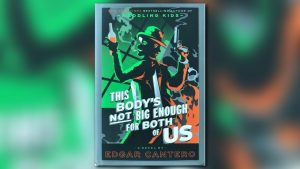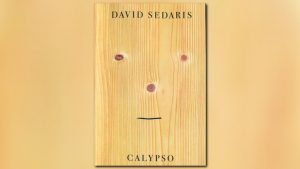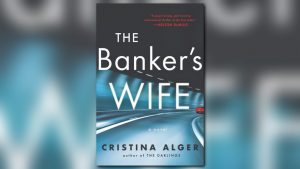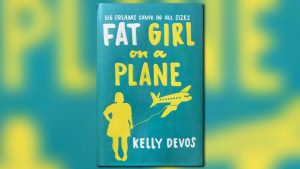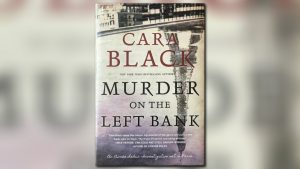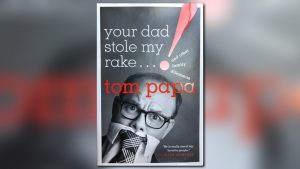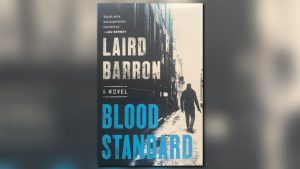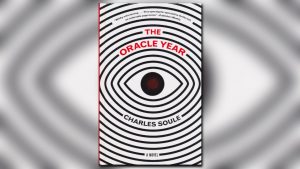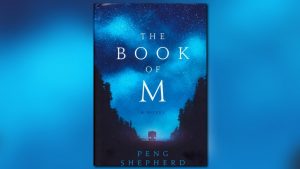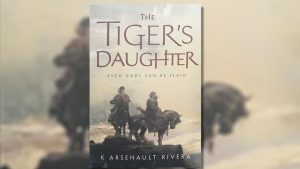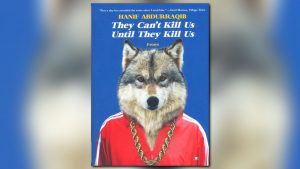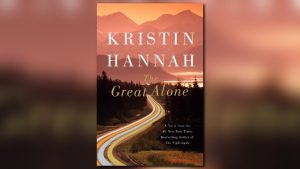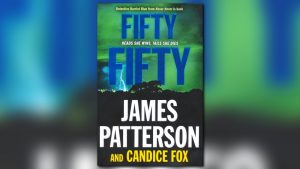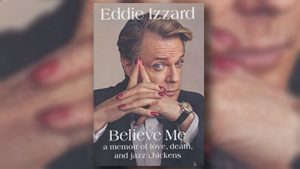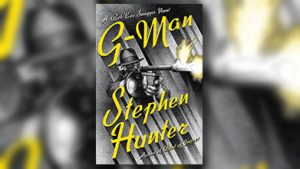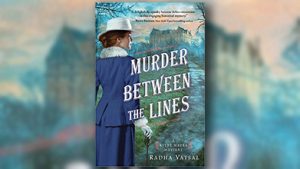This is the story of Rachel, the daughter of a Danish mother and a black G.I. who becomes the sole survivor of a family tragedy.
With her strict African-American grandmother as her new guardian, Rachel moves to a mostly black community where her light brown skin, blue eyes and beauty bring mixed attention her way.
Growing up in the 1980s, she learns to swallow her overwhelming grief and confronts her identity as a biracial young woman in a world that wants to see her as either black or white.
Meanwhile, a mystery unfolds, revealing the terrible truth about Rachel’s last morning on a Chicago rooftop.
Interwoven are the voices of Jamie, a neighborhood boy who witnessed the events, and Laronne, a friend of Rachel’s mother.
Inspired by a true story, “The Girl Who Fell from the Sky” explores issues of identity at a time when many people are asking “Must race confine us and define us?”
ALBERTO RIOS: Welcome to Books & Co., I’m your host, Alberto Rios. We are joined by novelist Heidi Durrow, who will be talking about her book, The Girl Who Fell from the Sky, winner of the Bellwether Prize for Fiction. It tells the story of a biracial young woman who, because of tragedy, comes to live with her grandmother. Thanks for joining us.
HEIDI DURROW: Thanks for having me.
ALBERTO RIOS: I wonder if we could start by you saying a few words about the Bellwether Prize.
HEIDI DURROW: It's called the Bellwether Prize for Literature of Social Change.
ALBERTO RIOS: Even better.
HEIDI DURROW: It's even better, isn't it? It was created by this really wonderful, magical amazing woman named Barbara Kingsolver.
ALBERTO RIOS: We may have heard of her.
HEIDI DURROW: Maybe. I had heard of her and was so astounded when I found out I was the winner of the Bellwether Prize. The idea she had was that she wanted to make sure that unpublished novelists writing books about social justice and social change would get published, so that we would have literature that was about something. I have no trouble with vampires. I think vampire stories are fun, and they have their place. But more and more, because of the marketplace, stories where we're talking about our culture, our community, are being crowded out because they are not necessarily commercial. Her idea was to encourage new novelists. I was going to say young, but I'm not so young anymore.
ALBERTO RIOS: Yes, you are.
HEIDI DURROW: And so I won this prize. With the prize comes prize money, as well as a guaranteed book contract. So the prize changed my life.
ALBERTO RIOS: And we have the book now.
HEIDI DURROW: And now we have the book.
ALBERTO RIOS: In The Girl who Fell from the Sky, so many things are at work simultaneously in it. I think two major strands really weave themselves together here. We have the story of the biracial young woman, and then the family tragedy that sets her course. Do you want to talk a little bit about, first of all, her biracial background?
HEIDI DURROW: Well, I want to start with the tragedy, only because that's where I started as a writer.
ALBERTO RIOS: Okay.
HEIDI DURROW: I knew I wanted to write a story, once I had read a newspaper article many, many years ago about a family that died in a tragedy just like the one I describe in the book, but the girl survived. At the time, all the questions were about, how could we live in this world, and what kind of place would this be where the Family would be in this position? And these are good questions, I thought. I thought the more important question for me was, “What happens to the girl?” She survived, what does her future look like? What do you do if you have a tragedy like that bookmarked inside you? She was going to go into young Adulthood, being a young adult woman, but she would have this tragedy that she would have to deal with, and do it all without her family and without her mother.
ALBERTO RIOS: The vagaries of just growing up.
HEIDI DURROW: And I got really stuck when I tried to write what I imagined that real girl would exactly do. I knew probably three things about this girl: her name, her age and where she lived obviously. I thought, that's not going to do it for me. What's going to help me in writing the story is to figure out, why am I so obsessed with this girl and what happens to her? What is it that resonates within me? That's when I picked up on this idea of writing the story as if the real girl were biracial -- biracial, bicultural, half white, half black, African-American and Danish like me.
ALBERTO RIOS: This is an extraordinary combination, not one you see every day, which also marks her as different. Not just African-American in a white community, but African-American and Danish, white but Danish.
HEIDI DURROW: Yes. The thing I found so interesting in America that is we equate race with culture. It's hard to separate out those two things. I know in my own experience I very much related to the character of Rachel. I gave her a bit of my struggle, a bit of my story. I sent her to live with my grandmother in Portland, Oregon, where I grew up at age 11 in a mostly Black community. She's going to be dealing with the same kinds of identity issues, kind of like me. She's not only going to deal with her grief, but also this question I was facing at the time, which is “What are you?” People kept asking me this. I thought it was so peculiar. So I would say the truth, I would say, “I am the very best speller in my whole class,” and they would laugh. They thought, no, no, I mean, “What are you?” I would say “I’m good at math and I think I’m a good poet and I like to read. “No,” they would say, “are you Black or are you white?” This never occurred to me before. I grew up mostly overseas; my dad was in the Air Force. We lived in Germany and Turkey and spent our summers in Denmark. I think I would have said American, and suddenly I’m in America and that's not enough. So there was a steep learning curve suddenly for me to figure out. How is it that I could be in this world and actually be all of the story that I am, in a world that wants to label me as this one thing, because that's all they can understand?
ALBERTO RIOS: Which is ironic at a time when we want everybody to say they are American. So it's a little odd this would get parsed out, if you're not mainstream or main culture, that person.
HEIDI DURROW: I think it was also difficult because I was not half French, I was half Danish. People confuse that with Dutch. People haven't met Afro Vikings very much. I'm in the vanguard of Afro-Viking literature here. I think it's interesting because in America we are so wedded to the distinctions between Black and white, we are only beginning to deal with brown and other pieces of our story here in America, that there was no place to be Danish in that equation because that would accommodate a whole country, it would accommodate a history, a culture, a language. There was no way to do that, so it had to be just white.
ALBERTO RIOS: In the complexity of north Denmark, south Denmark. We have them here, but we don't attribute that to other places, either.
HEIDI DURROW: I have to tell you the story about going back to Denmark, after not being there for many, many years. I went back in college and visited with my cousins who had moved to Copenhagen. They lived outside of the city on the big peninsula, but now they are in the big city and had Copenhagen boyfriends. I speak Danish fluently and didn't have people have trouble understanding me at all. These guys would laugh so hard when I talked. I thought, what is going on here? They said, you have the funniest accent. You sound like you're from the country.
ALBERTO RIOS: a Danish country bumpkin.
HEIDI DURROW: It was as if I landed on the upper east side of Manhattan. I didn't realize the country could have so many variations in speech, but of course they do.
ALBERTO RIOS: Of course they do. You've raised an interesting issue. Part of the story -- and I'm going to ask you about where this line is -- is based on things that are yours. Where do you make the distinction and where are you comfortable making up? There are only three things you knew about the original story.
HEIDI DURROW: Yeah.
ALBERTO RIOS: and you've got your story but you've got this future you want to write for the young woman Rachel who's struggling. After all, it's ultimately her story. You're not writing a memo mirror or your story wholly. When were you comfortable making something up, as opposed to reporting something from your own life?
HEIDI DURROW: I struggle with this answer still, and I get it often, how much of Rachel is me, how much of the book is my autobiography. I think I can say what is true about it is it has my struggle in it. Every single character in that book, all of the struggles are my struggles. Definitely in that way that's my story. Beyond that, the things that happened to the protagonist didn't necessarily happen to me. It is difficult to not put yourself into it. I think it's James Baldwin who said all art is a confession; it's to wring out that last bittersweet drop of experience and put it into our art. It is a confession in a way, but not necessarily dates and times and villains identified within the story.
ALBERTO RIOS: Of course you're doing that, and I think that gives it some vivacity, it makes it come alive. Partly because you're alive and you bring that, and maybe rescue is too strong a word, but you do something with that tragedy story you just read in a newspaper. You give it something, you give it some life.
HEIDI DURROW: Well, I wanted more life out of that real story for me. I remember being so frustrated by the questions that people asked at the time. And I thought, “You know what? You're not asking all the questions that you need to ask.” When I sat down to write the book I thought, I’m going to make sure the reader starts to ask these questions. Why did we as a community fail this family? And where was the father? Isn't he a little bit to blame for this? Where was the best friend who was supposed to be taking care of these people and watching out? Why did she also fail, too? In the book, I think that's what compels the suspense of the story. You're always questioning, well, I thought I knew what happened exactly that day, but maybe there are more culprits than I was willing to believe at first.
ALBERTO RIOS: and one of the hardest things that we sort of -- well, Rachel is faced with it -- but her grandmother's advice more than once is that she should not wonder about her father. Put it to rest. That's a very difficult kind of advice for us to hear.
HEIDI DURROW: Isn't it happening, though, all the time? We give dads a free pass in our society right now, I’m not sure why. I think I may be remembering this wrong. Let me have this, if you will. I remember reading Song of Solomon by Toni Morrison, one of my favorite books. She dedicated it to all the fathers. I was struck by that dedication, Where are they all? I hope in this book that there's a way for people to read it to Say, you know what, know this dad wasn't the best dad. He wasn't abusive, he was inept in many ways, incompetent, but it's a really good thing to be present in your child's life.
ALBERTO RIOS: For Rachel, her father's so heartbreakingly absent because she knows her to not be alive.
HEIDI DURROW: And she's not able to talk about it at all. For whatever reason, her grandmother believes that talking, telling stories, is harmful. This is exactly the opposite of what I believe. I think telling stories heals us ultimately.
ALBERTO RIOS: Let me take a moment to remind our viewers, you're watching Books & Co. I'm your host Alberto Rios. We're talking with Heidi Durrow who's discussing her book, The Girl Who Fell from the Sky, the story of a half Danish, half African-American young woman who's come to live with her
grandmother after a family tragedy. I have to say, as I come away from the book, I am most struck by the poetic approach you take to this. As I was reading the book, you sing poetic moments, and they startle me. I'm reading a narrative and it's flowing, and suddenly you startle me by singing something. I'm going to read a line or two where you're doing this. You say, "I also liked Drew because he makes the happy in Aunt Loretta visible." “I liked that, because it make the happy visible. But when grandma paints her dream for me, there's a low sky.” That's not just poetic; again, it's back to that heartbreak. It's not death but it's a future with a low sky.
HEIDI DURROW: Yeah.
ALBERTO RIOS: So the poetry of that seems to come forward pretty often. You talk about being a good poet and I agree with you, and I think it comes through. And of course it comes through in the tragedy itself, when Rachel is finally giving to the reader her version of what -- it's quite poetic.
HEIDI DURROW: thank you. I'm a frustrated poet. And hearing these words from a fabulous amazing poet, I think -- am I turning red? I am very interested in sound. And when I was writing the book, I would read the book to myself as I was writing it. When I couldn't read it out loud, and I'd stop, that meant the word wasn't right and I had to go back. I love also this idea of sound for the book itself, because the book is very much about labeling other people, knowing how to identify something. Is it most important to know its name or to know what it looks like, or to know what it sounds like?
So sound is very important to me. The writing of the book, also, I wanted to tune the reader in to kind of a rhythm of not just the sound, but also kind of the feeling of what was going on, the moment. I am so glad you picked out that one line about the low sky. That was my alternative title.
ALBERTO RIOS: Wow, I’m not surprised. It was striking when I came across it. It just -- well, it felled me. It made me feel what I think she was so quietly describing in that moment, and it was such a huge statement, so quietly rendered.
HEIDI DURROW: The grandma in the book is loosely fashioned after my real grandmother who's turning 94 very shortly. It's a contrast. So Grandma Doris has grown up in the South in Texas, and has come to the Pacific Northwest, not Chicago or New York, as you normally think about the great migration north of Black people. She went to the Pacific Northwest and worked in the shipyards, the Black character, and took the South with her. Of course her language, but also her ideas of the world. There was a certain way of being okay and safe in the South she's taken to the North with her. So if things are good enough, that's great in Grandma Doris' mind. But she hasn't allowed for the fact that the world is getting bigger, it's changing, and maybe each generation gets a little bit more. They get a little higher sky than even she could ever imagine.
ALBERTO RIOS: It's in her training and background not to -- it's dangerous to want more, for her.
HEIDI DURROW: Exactly. Exactly. In the same way for the mother, for Nella, her refrain to the kids is always, be careful. I think there's this difficulty. I'm not a parent myself, but I'm a child of someone who parented me. I think there is a great difficulty in trying to figure out, how do we let the kids grow up, and keep them safe, without crushing them into safety? To crush them into safety is a difficult thing.
ALBERTO RIOS: And this is the grandmother's way of keeping her safe is saying, don't want that.
HEIDI DURROW: Don't want, yeah.
ALBERTO RIOS: And yet, of course –
HEIDI DURROW: Don't imagine, don't wonder.
ALBERTO RIOS: And she's a child of her time and she wants everything. We start to see that. You have -- there's, aside from the poetic parts, there's a very pedestrian problem at the heart of so much of what goes on here. It's alcoholism.
HEIDI DURROW: Yes.
ALBERTO RIOS: Do you want to talk a little about that, the absent father, the friend, the mother that causes the tragedy, and so on?
HEIDI DURROW: It's a very important piece of the book. I wanted to write about alcoholism in a way I hadn't necessarily seen it written about in many books, especially also in movies where the alcoholic is demonized and then becomes an angel, or is simply a demon and a bad person and a wreck. I wanted to show how people are taken over by this disease and it's a struggle. But the struggle is not the person, and you can get better in many ways. The disease harms families in profound, awful, awful ways that we can't measure. We call it all sorts of other things, but in many families the problem begins with that. For the father, his alcoholism I think begins with the idea of not being able to escape one original failure. I'm being very cagey about that because I don't want to spoil the book for you. But also because of his need to be outside of race, and he thinks he's done that, and then he realizes he hasn't. He's traumatized by that in many ways. All of the characters come to alcoholism in different ways, but it's a hereditary disease. There's a moment when Rachel says, “You know, I didn't realize heredity could work backwards” when the grandmother starts to pick up her contributions.
ALBERTO RIOS: That's such a wonderful metaphor, she is so church oriented. This little bit of something extra. The contribution, she starts to take quite seriously, and yet even herself, though she's pragmatic and plain-spoken, and is trying to take good care of Rachel and hoping the best will happen, she can't.
HEIDI DURROW: She's not able to do it.
ALBERTO RIOS: She fills that inadequacy with this contribution.
HEIDI DURROW: I think the difficulty is we each have tragedies that happen to us, in small and big ways. Do we shut ourselves down? Do we medicate ourselves? Do we check out in these ways, whether it's watching too much TV or drinking too much? Or do we face the tragedy that has befallen us?
HEIDI DURROW: this is Rachel's great question in book, will she be able to tell herself the truth about that way on the rooftop and about what happened.
ALBERTO RIOS: She finds her way through that in a fashion that gives us something to take out of book.
HEIDI DURROW: Good.
ALBERTO RIOS: That we get, because of how she views that. I want to try one other thing and ask you about this. Her struggle with language, she is clearly interested in her education. She is a smart young woman, Rachel. She wants to learn big words. Yet --
HEIDI DURROW: Discombobulated –
ALBERTO RIOS: She's facing students who maybe are not interested in their education, but it's very confusing for her. They are also speaking in African-American dialect of one form or another.
HEIDI DURROW: It is difficult.
ALBERTO RIOS: I don't know how many people get to talk about the fact that they have lots of languages in their everyday.
HEIDI DURROW: I have a home language; we would speak Danish at home. Outside, the kids would speak an African-American dialect I came to understand. Then there was the standard school dialect I had to use in school. We're dealing with ways of switching over all the time. I wanted to bring that to the fore in this book, to say, I know we're all going in between and outside of our languages and outside of our comfort sometimes and talking. What I love about being able to talk about Rachel and language in this way is that she does find some places where this African-American dialect serves her better in making her meaning right. There's this wonderful moment when she says, “I like me some Etta James!”
ALBERTO RIOS: She goes on to not just say that, she recognizes that she needed language that wasn't intrinsically hers in order to say this new thing that suddenly she's getting in a first moment of connection to the language she's been hearing around her. I think that's a big moment.
HEIDI DURROW: This happens to us as readers, also, isn't it? And when we meet new people, all of a sudden we think, wow, I have that in me, and now I have a way to translate it because I have language for it. I've met this person who can bring this forth in my. That's really -- that's what love is, when you find the way to get the thing that's in you that you knew was there, but didn't know how to say it?
ALBERTO RIOS: Love and all of those physical manifestations too, like the high-five. This is language, but we don't always arrive at that or view it as intellectual. That's part of her struggle that's I think quite interesting.
HEIDI DURROW: Rachel is an interesting character to write, because she is very disconnected from what actually happened to her, by necessity. She can't actually know everything about that tragedy every moment of her existence. She really couldn't function, whatsoever and she's just trying to grow up. I think ultimately what happens with Rachel is she gets more and more inside of her body. She starts in the smallest way. She has a coping mechanism. She says, “When something starts to feel like hurt, I put it in this bottle inside me. It's blue glass with a cork stopper. I put the pain and anger and all of those things go in there. My eyeballs get hot and my stomach tightens and everything goes in there.”
ALBERTO RIOS: That's her first way of trying to get some feeling in her body but contained still. As she grows older, she has to be in her body. She has to feel herself, who she is. This is her struggle. As we finish the book, we hope that that blue bottle does not break.
HEIDI DURROW: Yeah, Yeah.
ALBERTO RIOS: We've been talking today with Heidi Durrow, who has been discussing her book, The Girl Who Fell from the Sky. I'm Alberto Rios for Books & Co. Thank you for joining us today, we hope to see you again very soon when you bring us another good book.





